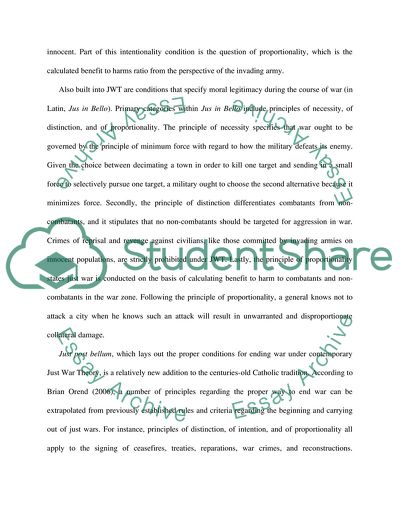Cite this document
(The Catholic Morality of the Just War Theory Research Paper, n.d.)
The Catholic Morality of the Just War Theory Research Paper. Retrieved from https://studentshare.org/religion-and-theology/1744176-the-catholic-morality-of-the-just-war-theory
The Catholic Morality of the Just War Theory Research Paper. Retrieved from https://studentshare.org/religion-and-theology/1744176-the-catholic-morality-of-the-just-war-theory
(The Catholic Morality of the Just War Theory Research Paper)
The Catholic Morality of the Just War Theory Research Paper. https://studentshare.org/religion-and-theology/1744176-the-catholic-morality-of-the-just-war-theory.
The Catholic Morality of the Just War Theory Research Paper. https://studentshare.org/religion-and-theology/1744176-the-catholic-morality-of-the-just-war-theory.
“The Catholic Morality of the Just War Theory Research Paper”, n.d. https://studentshare.org/religion-and-theology/1744176-the-catholic-morality-of-the-just-war-theory.


